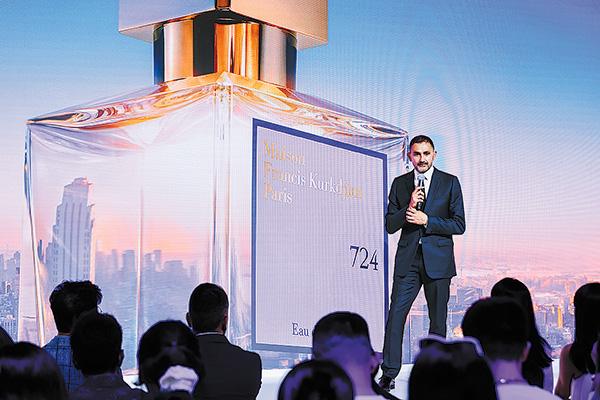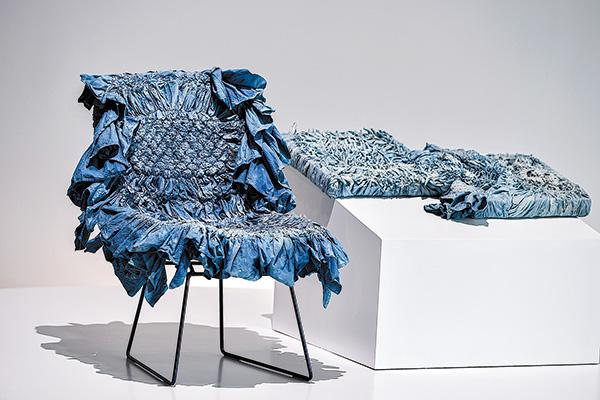
Francis Kurkdjian at the launch of a new fragrance at the Modern Art Museum, Shanghai.[Photo provided to China Daily]
The French perfume maker Maison Francis Kurkdjian launched its new fragrance in the Chinese mainland with an immersive art exhibition at Modern Art Museum, Shanghai from July 24 to 26.
The exhibition showcased the creations and ideas of Francis Kurkdjian, a contemporary perfumer and co-founder of the company, alongside with the works of three Chinese artists: Gu Zhongsheng, Lin Fanglu and Gao Weigang.
The new perfume named 724 was inspired by "the uplifting energy of big cities", according to Kurkdjian.
"There is something about big cities that sweeps over you, electrifies you, elevates you," he said at the opening on July 24.
"I translated that communicative energy, that life pulsating in unison, into a musky, floral, urban fragrance that I named 724, for 24 hours of scented living, seven days a week."
One of the three featured artists, Gu is a photographer who "spent the best eight years of my life in New York". On exhibition were a series of pictures he took of the US metropolis.
Lin Fanglu's series of work Inclusiveness.[Photo provided to China Daily]
He recalls the rhythm and sounds of the Big Apple — "the noise of the ambulances, police sirens, the subway trains passing overhead" — and the artist from Beijing says that "Shanghai is more like New York, with many small communities and life is convenient".
Each city has its unique smell too, he says.
"As soon as you land in the airport in New York, you smell the familiar laundry detergent, Beijing smells typically of a light smoke, while Shanghai is characterized by the smell of the wet leaves of the sycamore trees."
Like artworks, fragrance and smell inspires imagination, and takes people to a different place, says Shi Jinle, a representative of Gao, whose installation on show featured hanging ladders made of thin wires.
"The uplifting energy and sense of layers in Gao's work resonates with the message of the perfume," Shi says.
"There have been contemporary artists who experimented working with smells, which is an important part of the human perception and cognition. I believe Gao could be interested in exploring this field."
The third artist Lin's installation series on show, entitled Inclusiveness, featured denim processed with the traditional tie-dyeing of Dali Bai autonomous prefecture in Southwest China's Yunnan province.
The natural botanic dyeing agent is made with fermented Radix Isatidis, a herb widely used in traditional Chinese medicine.
"You put the herb in a giant vat, add Chinese liquor, plant ashes and other materials, and leave it at the right temperature for a month, then you will have the dye," Lin says.
"In Yunnan, the crafts were done by women, who were under-educated and some could not even write their own names," she tells China Daily.
"They created such powerful artworks with complicated folding, twisting and pleating techniques on the fabric, which have been passed down for more than 1,000 years."

